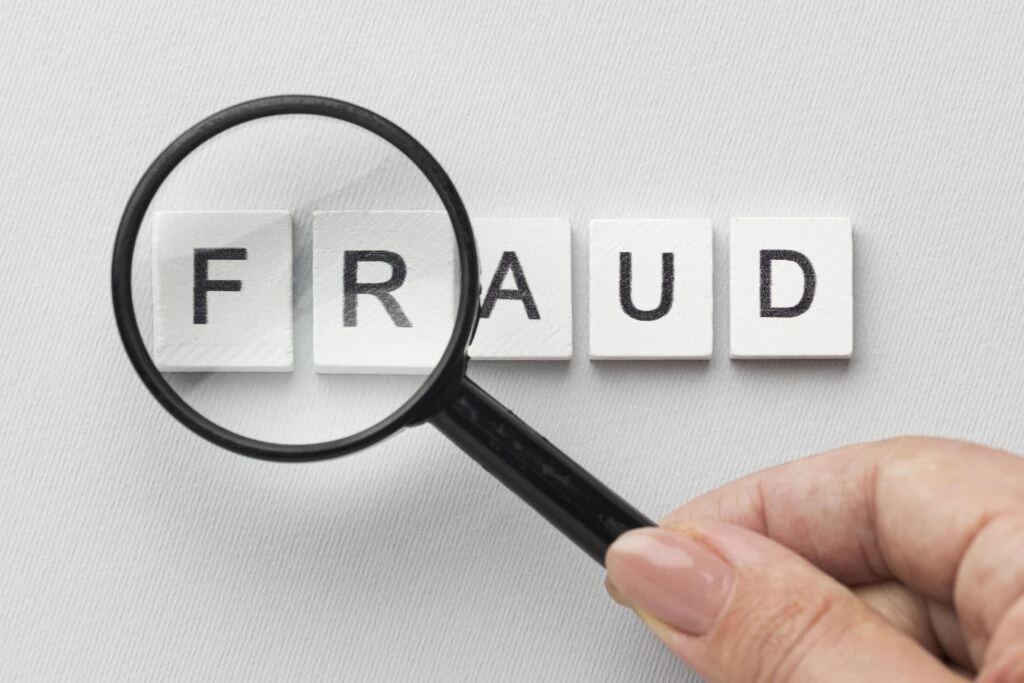In 2009, Bernie Madoff pleaded guilty and was convicted of operating the largest Ponzi scheme. He was charged with multiple financial crimes, one of which was embezzlement. He took people’s money with the promise of growing it through his investment company. When Bernie took the money and used it to pay for his own needs, he embezzled the money of the investors.
What is embezzlement?
California Penal Code Section 503 defines embezzlement as, “the fraudulent appropriation of property by a person to whom it has been intrusted.” [sic] Embezzlement is when a person entrusts another person with property or money and the entrusted person takes the owner’s property for their own benefit. While the embezzler was given money by the owner, the embezzler essentially steals the money once they use the money for purposes other than what the owner intended.
In sum: Embezzlement requires knowingly taking money or property that was entrusted to them to derive personal gain from it with the intention of depriving the owner from any of the benefits.
Is embezzlement a White Collar Crime?
A White Collar Crime is a category of crime that has a financial aspect rather than a physical one (murder, aggravated assault). Embezzlement is considered to be a White Collar Crime because the offense is a financial crime in which the victim endures a monetary loss.
What embezzlement apart from other crimes is that embezzlement requires a break in trust. While no one is physically harmed by the theft, the break in trust harms not only the victim but also those involved with the victim. This is why the crime carries a jail/prison sentence and/or a fine. The public’s trust has been broken because of the embezzler’s actions.
What is the difference between embezzlement and larceny?
Larceny is the crime of stealing property or money that never belonged to the perpetrator. This is similar to embezzlement since the property never belonged to the embezzlement. However, taking from someone else with the intention to deprive is considered to be larceny because the perpetrator was never entrusted with the property by the owner. The embezzler is given possession of the property by the owner but takes it or converts it for his own purposes to deprive the owner of any benefit.
Example 1: If Person A takes Person B’s lawn mower without Person B’s permission, Person A has committed larceny.
Example 2: Person B entrusts his lawn mower with Person A. Person A charges a fee to his neighbor every time his neighbor uses the lawn mower. Person B never agreed to this arrangement nor does he get the profits. Person A has committed embezzlement.
What is the difference between embezzlement and fraud?
Fraud is the theft of money, property, or identity with the intention of deriving personal gains from the theft. Fraud is perpetrated when there is a deception that leads to unlawful gains using the victim’s property.
An example of this is if a person’s identity is used to open a bank account to funnel unlawfully money into it. to protect the fraudster’s identity. There is no sense of trust when the fraudster takes and uses the victim’s property. When an embezzler takes someone’s money and derives gains from it without the permission of the owner, this is embezzlement.
Is embezzlement a felony or misdemeanor?
The penalty for embezzlement is either a misdemeanor or a felony, because it depends on the amount of money stolen or the amount of money the property was worth. The deciding factor depends on the amount of money or property embezzled. In Los Angeles, the criminal court refers to this feature as a “wobbler” crime, because the crime can be penalized either as a felony or a misdemeanor.
- If the embezzler is charged with Grand Theft (the property embezzled is a firearm, automobile, or worth more than $950.00), then the crime is considered to be a felony. The penalty for a felony is up to three years in jail and/or a fine of up to $10,000. Relating to real property contracts, the penalty is $10,000 and/or a jail sentence of up to a year.
- If the embezzler is charged with Petty Theft (the property is valued at less than $950.00), then the crime is considered to be a misdemeanor. The penalty for a misdemeanor is up to a year in jail and/or a fine of up to $1,000.00.
Crimes Related to Embezzlement
In many cases, a person who is charged with embezzlement can also be charged with other crimes that relate to the stealing and distribution of embezzled funds or property. These crimes can include:
- Forgery
- Burglary
- Misappropriation of Public Funds
- Receiving Stolen Property
- Grand Theft
- Petty Theft
What is the Statute of Limitation for embezzlement in California?
The Statute of Limitations refers to the amount of time the state or federal government can charge a person with a crime. For some crimes, there is no limit; for other crimes, there may be a 2-3-year window before the time to file charges expires.
- Under California Penal Code 799 PC, there is no Statute of Limitations for embezzlement of public funds in California.
- The Statute of Limitations for embezzlement of private funds is four years.
Need Help?
Embezzlement is not a charge to take lightly. David L. Faulkner has experience with defending people who have been charged with a White Collar Crime. If you are seeking legal help for embezzlement charges, contact the Law Office of David L. Faulkner.










